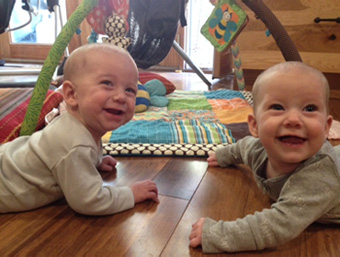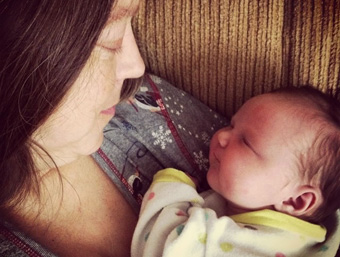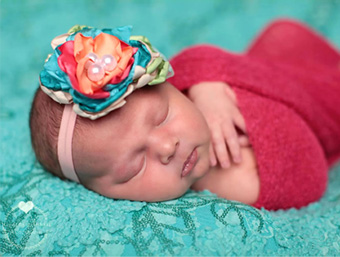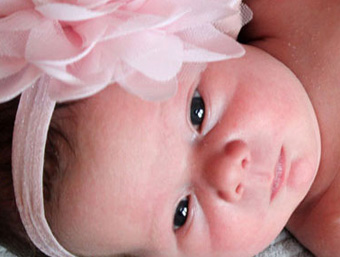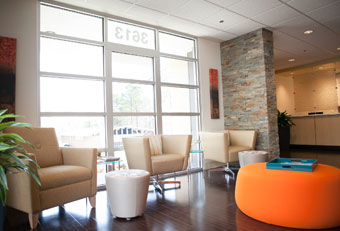 This is the fifth article of a series dedicated to women considering alternatives for pregnancy and tubal ligation reversal after the age of 40. The previous article provided an overview of the benefits of tubal ligation reversal at A Personal Choice for women in their forties. This article focuses on the surgical and early pregnancy risks for older women having their ‘tubes untied’.
This is the fifth article of a series dedicated to women considering alternatives for pregnancy and tubal ligation reversal after the age of 40. The previous article provided an overview of the benefits of tubal ligation reversal at A Personal Choice for women in their forties. This article focuses on the surgical and early pregnancy risks for older women having their ‘tubes untied’.
The first of the series is Tubal Ligation Reversal After 40 | Introduction.
Tubal Reversal Surgical Risks
Any medical procedure or surgery has associated risks. The microsurgery techniques we use minimize these risks. In general, the major risks of surgery are postoperative infection or bleeding severe enough to require blood transfusion. The major risk of hospital-acquired infection (such as MRSA) is avoided by keeping patients out of the hospital. We perform approximately 800-900 tubal reversal procedures a year. In any given year, we may have a few patients report minor infections of their incision that may result in treatment with oral antibiotics by their local physicians. No major infections have occurred requiring hospitalization or repeat surgery. None of our patients has required a blood transfusion after tubal reversal surgery.
Tubal anastomosis, as performed at A Personal Choice, is one of the safest outpatient procedures with the lowest complication rate of all operations involving the female pelvic organs.
A Personal Choice Complication Data for 2008
In 2008, we performed 890 tubal ligation reversal surgeries. Our Quality Management team collects data on every patient and monitors reported surgical complications. Our adverse event data for 2008 is as follows:
·Blood Transfusion 0 patients (0%)
·Major Infections 0 patients (0%)
·Minor Infections 5 patients (0.6%)
·Early Operative/Anesthesia complications 4 patients (0.4%)
·Late Complication Needing MD Visit 15 patients (1.7%)
Refer to the summary section at the end of this article for a clarification of the reported complications. The risks of intraoperative or postoperative complications associated with tubal ligation reversal do not appear to be age-related.
Fallopian Tube Repair Not Possible
In some patients, reversal of tubal ligation may not be possible because of extreme scar tissue formation from previous pelvic inflammatory disease (PID) or previous surgery. If the fallopian tubes were removed or destroyed during the tubal ligation, surgical repair is not possible. These irreversible tubal ligations can usually be predicted by the tubal ligation operative report, tubal ligation pathology report, and/or a diagnostic laparoscopy done immediately before making the skin incision for tubal reversal surgery.
At A Personal Choice, we have found the vast majority of tubal ligations (98%) are reversible. Among women who undergo the reversal procedure, approximately 10% will only have one tube repaired. Even in this situation, pregnancy is possible and expected in most cases.
Tubal Closure – Limits of HSG
Some tubal reversal procedures will results in tubal closure or reocclusion after the reversal procedure. This typically occurs within several months of the reversal surgery and is not a delayed complication. If one tube closes and the other does not, pregnancy can still occur. Closure of both tubes after tubal anastomosis is uncommon (<5%) and is seen primarily in women whose fallopian tubes are moderately to extremely fibrotic at the time of their tubal surgey. Fibrosis is an indication of prior inflammation, and is more often seen after extensive coagulation than other tubal ligation methods.
If a patient does not become pregnant within a year, we recommend they have a hysterosalpingogram (HSG) to determine if the tubal segments scarred closed. The problem with this test (HSG) is that frequently the x-ray dye does not pass from the uterus into the tube (due to “tubal spasm”), in which case the test is inconclusive. In other words, the HSG cannot determine if the tube is open or blocked. In order to do that, it is necessary for the x-ray dye to enter the fallopian tube and go to the point where the tube was rejoined.
Frequently, radiologists misinterpret the HSG films when dye does not enter the tube and they will tell the patient her tube is blocked. Obviously, both tubes cannot be truly blocked and a pregnancy occurring.
For patients with adequate tubal lengths and with tubes that have minimal or no fibrosis, we will offer a second tubal reversal procedure at reduced cost, if they have not become pregnant and the HSG suggests bilateral tubal reocclusion. Each year, about a dozen women undergo a second tubal ligation reversal. The pregnancy rate is approximately 50% after tubal re-anastomosis (second anatomosis operation).
Ectopic Pregnancy after Tubal Reversal
 The main risk of tubal ligation reversal is the increased chance of an ectopic (tubal) pregnancy. We estimate the ectopic pregnancy rate to be 10-15% after tubal reversal. If an ectopic pregnancy occurs and is not treated early, then surgery may be necessary to remove the ectopic pregnancy. We have an early pregnancy monitoring protocol and an early pregnancy reporting system that we ask our patients to follow. This protocol allows for early detection of abnormally developing pregnancies (“blighted ovum” or ectopic pregnancy). Adhering to our early pregnancy monitoring protocol can avoid the risk of a ruptured tubal pregnancy, the complication that may occur if an ectopic pregnancy is allowed to continue developing. Medical treatment can prevent this complication, and most women who have had a miscarriage or ectopic pregnancy after tubal reversal will go on to have a healthy successful pregnancy.
The main risk of tubal ligation reversal is the increased chance of an ectopic (tubal) pregnancy. We estimate the ectopic pregnancy rate to be 10-15% after tubal reversal. If an ectopic pregnancy occurs and is not treated early, then surgery may be necessary to remove the ectopic pregnancy. We have an early pregnancy monitoring protocol and an early pregnancy reporting system that we ask our patients to follow. This protocol allows for early detection of abnormally developing pregnancies (“blighted ovum” or ectopic pregnancy). Adhering to our early pregnancy monitoring protocol can avoid the risk of a ruptured tubal pregnancy, the complication that may occur if an ectopic pregnancy is allowed to continue developing. Medical treatment can prevent this complication, and most women who have had a miscarriage or ectopic pregnancy after tubal reversal will go on to have a healthy successful pregnancy.
Comment In Summary,
Tubal ligation reversal at A Personal Choice is an affordable surgical option that allows women to become pregnant after tubal ligation. Reversal surgery provides a successful and cost-effective alternative to IVF and adoption. For many women, tubal reversal surgery is their only “second chance” to have more children. The surgical risks of tubal ligation reversal are not related to a woman’s age.
Overall the risk of a surgical complication from tubal ligation reversal at A Personal Choice is very low and is not age dependent. The adverse event data for our center during 2008 is reported above.
Infections. The majority of infections mentioned above were treated by the patients local physician with oral antibiotics. Only one patient was hospitalized overnight for observation and intravenous antibiotics.
Immediate operative complications. In 2008, 4 out of 890 patients had an immediate operative complication and were transferred to a local hospital for observation. Of the four patients transferred after their surgery, three were discharged from the hospital after a 24 hour observation and the fourth patient was observed for 48 hours and discharged home. No patient required any additional treatments.
Later MD Evaluations. Overall only 19 out of 890 patients (1.7%) presented to an outside facility for evaluation. The majority of these visits were for additional pain medications, allergic reactions to medication, or constipation.
The next article is Tubal Ligation Reversal After 40 | Tubal Reversal Process.
Submitted by Dr. Charles Monteith

